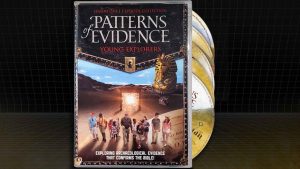News
Oregon abandons decriminalizing hard drugs
“America’s most radical experiment with drug decriminalization has ended, after more than three years of painful results,” The Atlantic reported in early April. Increased overdose deaths and “chaos in the streets” has the state of Oregon going back to criminalizing hard drugs.
When the state decided to decriminalize drugs in 2020, 59 percent of voters supported it. Decriminalization advocates wanted to focus on a strategy of reducing the harm that drugs cause to users. Over $260 million was spent on services to help make this a reality.
Three years later, 64 percent now want to go back, with support particularly strong among African American and Hispanic Oregonians. The New York Times reported that a wide range of officials supported a rollback in policy, citing surging homelessness, street protests, “an exodus of downtown businesses, record numbers of homicides, the rapid spread of fentanyl and soaring overdose deaths.”
British Columbia followed Oregon’s lead by decriminalizing many hard drugs in 2023. Adults in possession of heroin, fentanyl, crack, meth, ecstasy, and some other hard drugs, so long as they are for personal use, will not be charged. This is an experiment being run until 2026. The province’s NDP government is already being criticized by mayors of smaller cities in the province who are reporting public disorder similar to what’s been experienced in Oregon. Yet BC is pressing on with its experiment.
An underlying motivation for decriminalizing hard drugs and providing “safe supply” of drugs, even at the taxpayers’ expense, is the belief that drug problems will lessen if we ditch the the stigma associated with drug use. If we stop treating it as shameful and immoral, then, so the argument goes, more people might seek treatment. But as Romans 7 teaches us, the law plays in important role “in order that sin might be recognized as sin.” Secular society may succeed in changing its laws to reduce the stigma of sin, but as we’re seeing in Oregon, making sin seem less sinful isn’t the answer. That will only serve to hold sinners in bondage further. What is needed is something that the law can never accomplish. “Who will rescue me from this body that is subject to death? Thanks be to God, who delivers me through Jesus Christ our Lord!” (Romans 7:24-25).
Interview with an artist
Hetty Veldkamp’s landscapes began with a birthday
Interview with an artist
*****
 Lighthouse at Snug Harbour
Lighthouse at Snug Harbour
36" x 24”
“Taken last year when a friend gave us a boat ride to Snug Harbour, near Killbear Park. As we were entering the harbor, the sun was low and casting a warm glow on everything. It was such a beautiful moment and i tried to capture it in this painting.”
Years ago, Hetty Veldkamp retired from a successful career in graphic design to raise her family. But then, two decades later, a birthday gift she created for her husband launched her second artistic career, this time as a landscape painter.
She’d always been drawn to art. When she was younger Hetty would often create pencil drawings, just for fun, based on photos from magazines or advertisements. Her high school art teacher saw potential in her work and encouraged Hetty to consider art as a career.
After studying illustration and graphic design at Sheridan College, Hetty accepted a job as a graphic designer/coordinator with the Alberta government’s Public Affairs Bureau. She designed brochures, report covers, and logos for the various government departments. Then in the evenings Hetty would work on freelance projects or paint small watercolor paintings which she sold to friends and colleagues. “I was busy with everything art.” But when she and her husband decided to have a family, Hetty took a break from art-making.
That break would last 25 years.
For as long as she can remember Hetty has also been drawn to nature. She grew up beside the sea, living in a quaint fishing village in the Netherlands. She later settled in the rural Niagara Region in southern Ontario after immigrating to Canada with her parents. In the years that followed, Hetty and her family explored the many different regions of Ontario’s “cottage country” and Hetty became “hooked on the peace and beauty found there.”
“I have always enjoyed the great outdoors, hiking, camping, and cottaging. The vistas of Northern Ontario, Kilarney, Algonquin, and Killbear Provincial Parks; Georgian Bay and the landscapes of northeastern Ontario are a real inspiration to me.”
 Lily on a Summer Day
Lily on a Summer Day
40" x 20"
“This one was inspired while kayaking near a friend's cottage. It was summer and so peaceful, the lilies just seem so calm and serene. Lilies are a popular subject, and I paint them often.”
For her, they all brought the words of Psalm 8 to mind; “How majestic is your name in all the earth!”
It was those experiences and memories of those landscapes, previously painted by members of the famous Group of Seven, that inspired Hetty to pick up her brushes again. First she painted a painting as a gift to her husband for his birthday. She didn’t stop there. Many more paintings followed, some successful and some not so much. But Hetty persevered. She now has no problem selling everything she produces. Scenes of Ontario’s north feature prominently in her vast portfolio on her website. Judging by the number of paintings that are labeled “SOLD,” the scenes are popular with buyers too!
Hetty lives and works in Richmond Hill, Ontario. Working primarily in oil paint she works to capture her love of the outdoors and the peace she finds there.
“The lakes, trees, islands and rocks are beautiful; the ever-changing skies and water continue to inspire me.”
I remember Hetty speaking at my high school for a career day – she was one of the people who inspired me to pursue illustration and design. I even studied at the same college as she did!
You can see more of Hetty’s artwork on Facebook, Instagram, or at ArtByHetty.com. You can also email her at [email protected].
Jason Bouwman loves landscape painting too. Find his work at JasonBouwman.com and send him suggestions for artists to profile at [email protected].
Today's Devotional

April 19 - The fruit of the Spirit - Peace
“You keep him in perfect peace whose mind is stayed on You, because he trusts in You.” - Isaiah 26:3
Scripture reading: Isaiah 26:1-9
Isaiah 26 prophesies that a song will be sung “in that day,” which is the day of God’s salvation, and the song is a song of praise and joy. The coming of Jesus and His salvation is the fulfillment of…
Today's Manna Podcast

Divine compassion revealed: Jonah
Serving #452 of Manna, prepared by Ryan Kampen, is called "Divine compassion revealed" (Jonah) and is based on Jonah 4.































































































